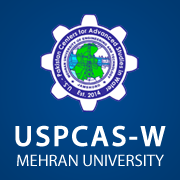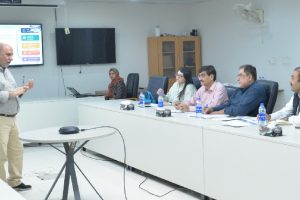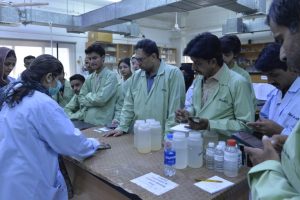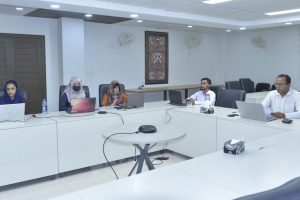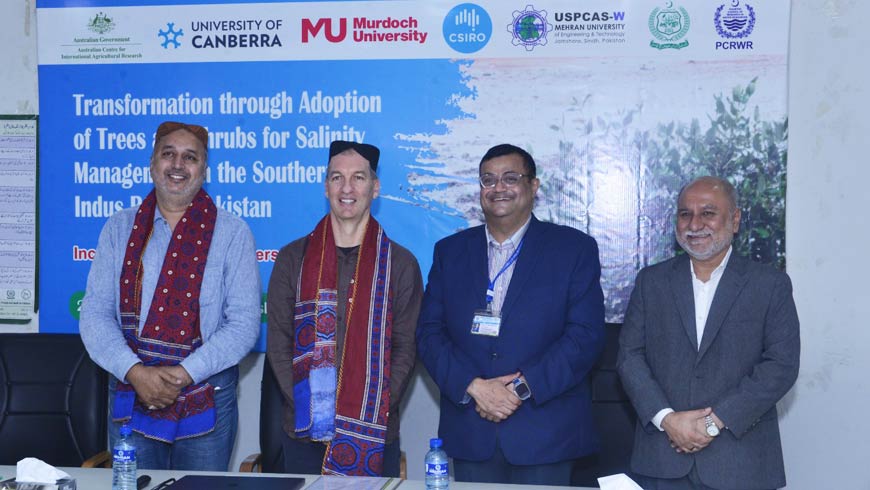
Inception and Stakeholders Workshop for Salinity Management in the Southern Indus Basin
The “Transformation through Adoption of Trees and Shrubs for Salinity Management in the Southern Indus Basin” project marked a significant milestone with the successful execution of its inception and stakeholders workshop. The event brought together experts, stakeholders, and academics to discuss the critical issue of salinity management in the Southern Indus Basin.
Prof. Dr. Kamran Ansari, Director of USPCAS-W, kicked off the workshop with a comprehensive introduction to the project and a warm welcome to all participants. He emphasized the project’s importance in addressing salinity issues and fostering sustainable agricultural practices. Prof. Darren Sinclair, Project Lead from the University of Canberra, provided an insightful presentation on the project’s background, significance, and objectives. He highlighted the existing research gaps and expected knowledge outputs and outlined the methodologies to be employed. Prof. Sinclair also underscored the value of stakeholder feedback and suggestions in refining the project’s approach.
Dr. Munawar Raza Kazmi, Country Manager of ACIAR Country Office, praised the collaborative efforts of all partners involved and commended the National Water Center’s pivotal role. He appreciated the project’s contributions to salinity management and its potential impact on local communities. Prof. Dr. Tauha Hussain Ali, Vice-Chancellor of Mehran UET, offered valuable feedback, recognizing the efforts and achievements of the Salinity Management Project. His remarks underscored the importance of continued collaboration and innovation in tackling salinity challenges.
A key presentation was delivered by Mr. Hafiz Abdul Salam, Regional Director PCRWR, Tandojam, who focused on the salinity phenomenon in the Southern Indus Basin. He pointed out that approximately 54% of the cultivated area in the lower part of the Basin is affected by salinity. Mr Salam discussed historical management practices and the role of trees and shrubs in saline landscapes and reviewed existing policies and initiatives aimed at salinity mitigation. Dr. Zakir Hussain Dahiri, Director General of PARC, Karachi, contributed to the discussion with a detailed overview of developing arboretum sheets, emphasizing the role of vegetation in salinity management.
Mr Naeem Dal, IT Specialist at USPCAS-W, Mehran UET, presented the Farmers Information Database application. The app will be available in Urdu, Sindhi, and English on iOS and Android platforms and the Worldwide Web. Mr. Dal highlighted the user-friendly interface that benefits farmers, decision-makers, and researchers by providing easy access to critical information.
Farmers, USPCAS-W faculty, and experts from the Agriculture University, including Prof. Dr Altaf Ali Siyal, Faizan-ul-Hassan from the University of Canberra, Ms Bareera from PCRWR, and representatives from the Forestry Department and CSIRO attended the workshop. Their active participation and engagement were crucial in shaping the project’s direction and ensuring its relevance to the community’s needs.
This workshop marks a pivotal step toward sustainable salinity management in the Southern Indus Basin, setting the stage for impactful research and practical solutions. The collaborative spirit and knowledge shared during the event will undoubtedly contribute to the project’s success and the betterment of the region’s agricultural practices.

